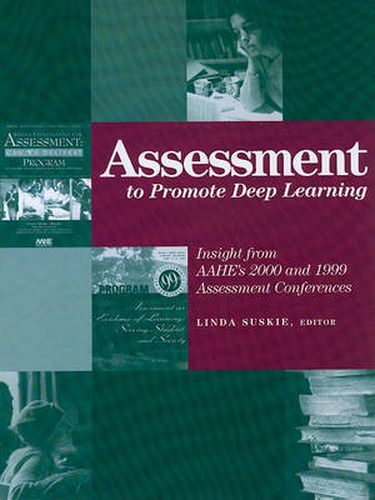Readings Newsletter
Become a Readings Member to make your shopping experience even easier.
Sign in or sign up for free!
You’re not far away from qualifying for FREE standard shipping within Australia
You’ve qualified for FREE standard shipping within Australia
The cart is loading…






Cutting-edge ideas from: Jorge Klor de Alva; Noel Entwistle; James Anderson; Victor Borden; Jean MacGregor, Vincent Tinto, Jerri Holland Lindblad; Barbara Wright; and others. They explore: (1) How does a successful for-profit institution define and assess its learning outcomes and use that information to develop programs? (2) How can we create curricula and assessments that promote deep learning that endures, rather than superficial surface learning? (3) What is an effective performance indicator, and what keys determine the best utilization in varied situations? (4) What have we learned from assessments of the learning community movement? (5) How can we use both assessment and accreditation to promote cultural change?
$9.00 standard shipping within Australia
FREE standard shipping within Australia for orders over $100.00
Express & International shipping calculated at checkout
Cutting-edge ideas from: Jorge Klor de Alva; Noel Entwistle; James Anderson; Victor Borden; Jean MacGregor, Vincent Tinto, Jerri Holland Lindblad; Barbara Wright; and others. They explore: (1) How does a successful for-profit institution define and assess its learning outcomes and use that information to develop programs? (2) How can we create curricula and assessments that promote deep learning that endures, rather than superficial surface learning? (3) What is an effective performance indicator, and what keys determine the best utilization in varied situations? (4) What have we learned from assessments of the learning community movement? (5) How can we use both assessment and accreditation to promote cultural change?